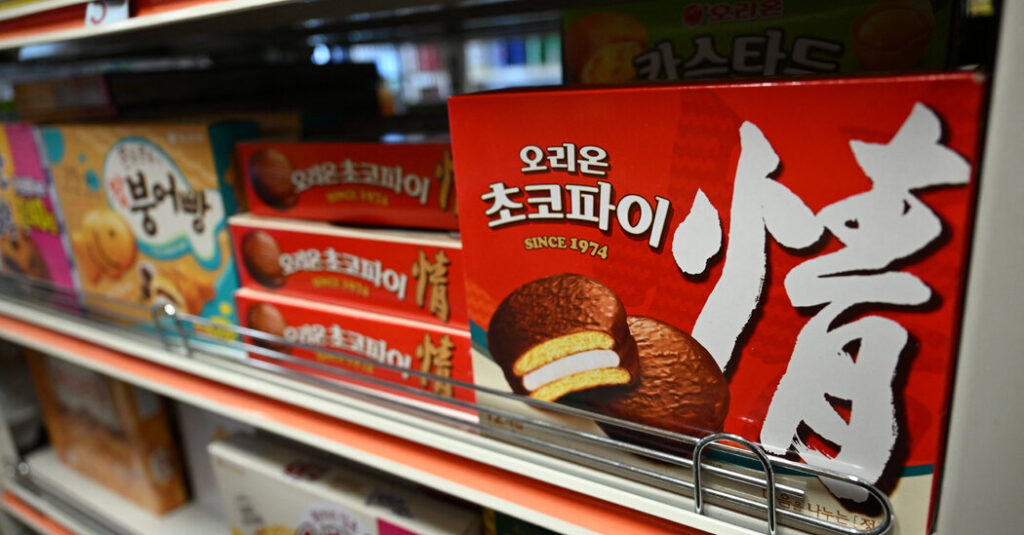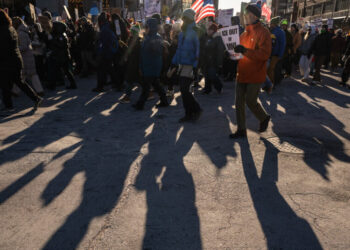The goods he was accused of stealing cost about 70 cents. Proving his innocence cost more than $9,000.
It began one early morning in January 2024 when a security guard took two popular South Korean snacks from a company’s office fridge. One, a Choco Pie, cost about 30 cents, and the other, a mini custard cake, cost about 40 cents. Later that month, the company accused him of theft, leading to his prosecution.
The case set off national outrage. The company, a logistics subcontractor of Hyundai, claimed the security guard was barred from helping himself to the fridge’s contents because he was its subcontractor, not a staff member. He insisted he was innocent, saying that people at the office had invited him to take the snacks.
Nearly two years later, an appellate judge declared the man innocent on Thursday, according to the district court of Jeonju, the city in the country’s south where the case was tried.
An initial guilty verdict in April had put the 40-year-old worker, whom South Korean officials did not identify by name, at risk of being fired.
“Is this the Jean Valjean of South Korea?” Seo Young-kyo, a lawmaker in the National Assembly said in a news conference after the verdict on Thursday, comparing the security guard to the fictional convict who was imprisoned for stealing a loaf of bread in the novel “Les Misérables.”
Ms. Seo urged the prosecutors not to appeal the verdict further, which they can still do for another week. “The overzealous prosecution almost cost a family its breadwinner,” she said.
That the man had to face legal proceedings for such a minor offense angered many South Koreans. It provoked the ire of some lawmakers, who questioned the prosecutor of the case and the court’s chief judge in a public hearing last month.
“I humbly accept the criticism that we are going against the public’s sense of justice,” Shin Dae-gyeong, the chief prosecutor of Jeonju said in the hearing ahead of the final verdict. He said his office was inviting members of the public to offer feedback through a citizen committee on how prosecutors should proceed with the case.
The man’s lawyer, Park Jeong-gyo, said that he had spent at least $9,240 on legal fees to defend his innocence since last year.
A judge found him guilty in April and fined him about $34: basically the lowest fine that a court can impose in a criminal case but nearly 50 times the value of what he had eaten. The judge cited a similar conviction in the defendant’s criminal history. The worker appealed.
The case set off suspicions that the logistics firm, which works on a distribution center of a Hyundai vehicle factory, had an ulterior motive in the case. Ms. Park, the man’s lawyer, said that he was being punished for his involvement in a workers’ union, which he had joined the month before he was reported to the police.
“The company has abused the law to suppress workers and labor unions,” Lee Min-jeong, the director of Jeonju branch of the Korean Confederation of Trade Unions, told reporters after the verdict on Thursday.
Prosecutors, who faced renewed public scrutiny over the case, reduced their sentencing recommendation in the appeals process, requesting a deferred sentence, a system where sentencing is postponed for a certain period and is waived if no incidents occur in that time.
In appeals, 39 of the man’s co-workers testified that they had snacked in the same office and had not faced any penalties. The Jeonju District Court said in a statement that those testimonies made it difficult to conclude the defendant had an intent to steal.
The security guard said in a statement delivered through his labor union, the Hyundai Motor Jeonju Irregular Workers’ Branch, that he was grateful for the acquittal and that he hoped no other worker would go through the same ordeal.
John Yoon is a Times reporter based in Seoul who covers breaking and trending news.
The post Worker Cleared of Stealing Snacks from Office Fridge After 2 Years in Court appeared first on New York Times.




